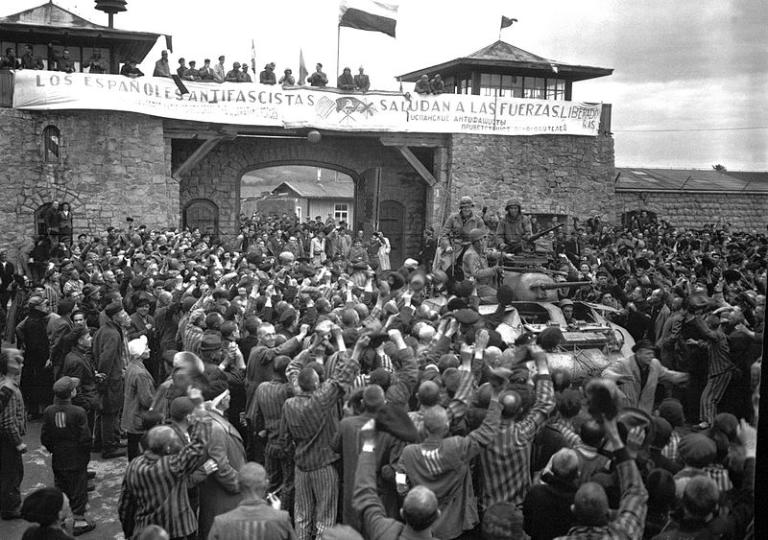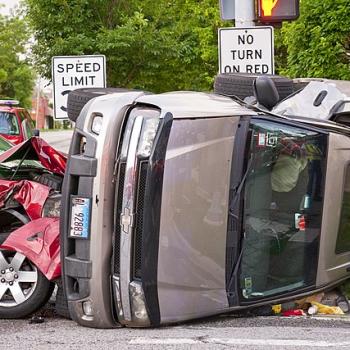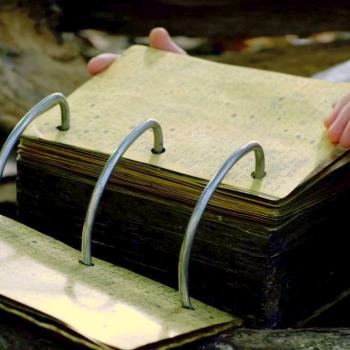
I’m guessing, from what he told me, that my father, a sergeant in the Eleventh Armored Division of General Patton’s Third Army, passed through this very same gate within a few minutes (at most) of this public domain photograph. What he saw there powerfully affected him for the rest of his life, and he told me about it on many occasions, imploring me never to forget what he said. I never have. I regard remembering it as a sacred duty both to my father and to the victims at Mauthausen.
I was absolutely horrified to read this, in the Washington Post:
“Holocaust study: Two-thirds of millennials don’t know what Auschwitz is”
My father repeatedly expressed his fear that what the Nazis had done would be forgotten, and I’ve felt at least some personal responsibility to keep the memory alive.
For some reason, though, that put me in mind of a blog entry that I originally posted back on 15 February 2012:
An article has appeared on The Daily Beast (and may perhaps yet appear in its printed companion, Newsweek), about vicarious Latter-day Saint baptisms for Jewish Holocaust survivors, a controversial topic that has arisen yet again.
I was interviewed for the article.
There are several things in it on which I could comment, but, owing to lack of time and reader patience, I think I’ll restrict myself to just a few:
“But despite more than two decades of negotiations and agreements between the two groups to prevent such baptisms of dead Jews,” reporter Allison Yarrow writes, “the practice persists. . . . Jewish and Mormon leaders first devised a pact to stop all baptisms of dead Jews in 1995, but soon after, Radkey made public that the church had reneged.”
No. No. No. NO. NO!
The Church has never promised to stop baptisms of “dead Jews.” Jewish members of the Church have just as much right to perform vicarious work for their ancestors and family members as do other members of the Church.
The Church agreed to try to prevent people from submitting names culled from unapproved extraction sources (e.g., as New Family Search explicitly mentions, from lists of “Jewish Holocaust victims”) for vicarious temple ordinances. The Church also strongly discourages whimsical submissions of the names of unrelated celebrities, and tells members of the Church to concentrate on their own ancestral lines.
If, however, those ancestral lines include deceased Jews, even if those deceased Jews were Holocaust victims, the names of these deceased Jews are entirely legitimate for submission to the temples.
(My take on it: The abstraction “the Jewish people” does not have a greater claim on deceased Jews than those Jews’ own flesh and blood families do.)
Ms. Yarrow and I discussed this, explicitly.
I can’t imagine how my explanation could have been any clearer than it was.
“But LDS leaders continue to make promises to Jewish leaders that they do not keep.“
I do not believe this to be even remotely true. I think the leaders of the Church have made serious, good faith efforts to meet Jewish concerns, even though I’ll frankly admit—and frankly admitted to Miss Yarrow—that I’m somewhat puzzled by those concerns.
From an outsider’s unbelieving perspective, all we’re doing is quietly mentioning a dead person’s name in connection with a few other words, and then plunging somebody else into a water tank located in a very private place. It takes approximately half a minute. I find it extremely difficult to see how the practice really harms anybody, if one assumes that it has no effect on the dead. And one can only assume that it has actual effect on the dead if one assumes that Mormon beliefs are true, that Mormon priesthood authority is efficacious in the next life, and that Mormon temple rituals are divinely ordained. In which case, again, it’s difficult to see how offering the gift of vicarious baptism actually hurts anybody.
Those for whom such baptisms have been performed are not listed on our membership rolls. We don’t presume that they’ve accepted the ordinance performed on their behalf. And we don’t specifically target Jews, let alone Holocaust victims.
“the mistaken request for a baptism of the very-much-alive writer, Elie Wiesel”
I’m not altogether sure that there was actually a “request for baptism” for Mr. Wiesel (whose writing, by the way, I find extraordinarily powerful). And, if there was, it was clearly improper and illegitimate; neither Church procedures nor Mormon theology permit the vicarious baptism of a living person.
“Regular checks of Family Search by a researcher who has been called the ‘Erin Brockovich of posthumous genealogy,’ Helen Radkey, revealed the baptisms of the Wiesenthals and the alleged targeting of Wiesel. Also a disaffected Mormon, Radkey . . .”
I admit to a sneaking suspicion that at least some of this is the work of one or more agents provocateurs. With many, many thousands of people submitting millions of names, I can’t help but wonder whether a critic or two aren’t setting us up. It’s especially curious, to me at least, that, when a potentially inflammatory name shows up in the records—a needle in a vast haystack—Helen Radkey is almost always immediately in touch with the Associated Press, the New York Times, and, well, The Daily Beast/Newsweek.
Call me paranoid.
(Permit me to add here, so that nobody will be unclear about where I’m coming from, that I fully understand the unique Jewish sensitivity on such matters, and that I don’t want to seem to minimize it. Given not only the Holocaust but a long history of pogroms and other abominations, I think I grasp the Jewish fear of anything that seems to threaten the survival of the Jewish people. For what it’s worth, my father was a sergeant in the U.S. military unit that liberated the Nazi concentration camp at Mauthausen, and that experience deeply impacted him for the rest of his life. I grew up hearing about it, and seeing copies of the horrific photographs that he took in order to document what he and his companions found. [A few days after the camp’s liberation, he put up a display of the photos in front of the city hall in nearby Linz, Austria, under the title “Nazi Kultur.”] I visited Mauthausen with my parents at the end of my mission, and have made several pilgrimages there — that’s how I view them — in the years that have followed.)
**
P.S. Ms. Yarrow characterizes me as “pro-Israel.” I think I need to qualify that. I told her that, at least partially because of my Mormon background and beliefs, I’m much more sympathetic to Israel than my fellow Arabists typically are. But that shouldn’t be taken to mean that I’m uncritically supportive of Israel. Moreover, I have very good friends on both sides of the Arab/Israeli conflict.












